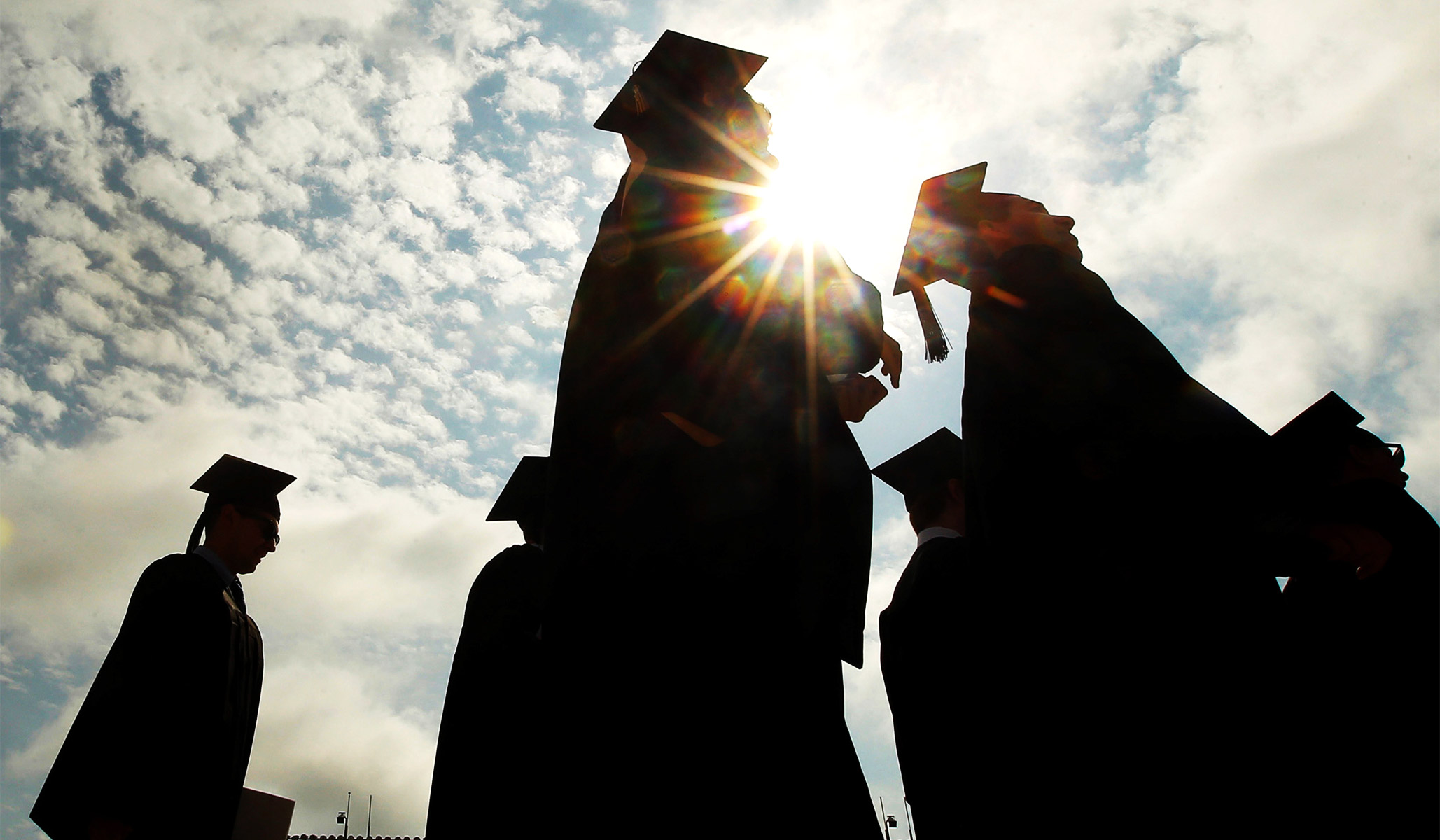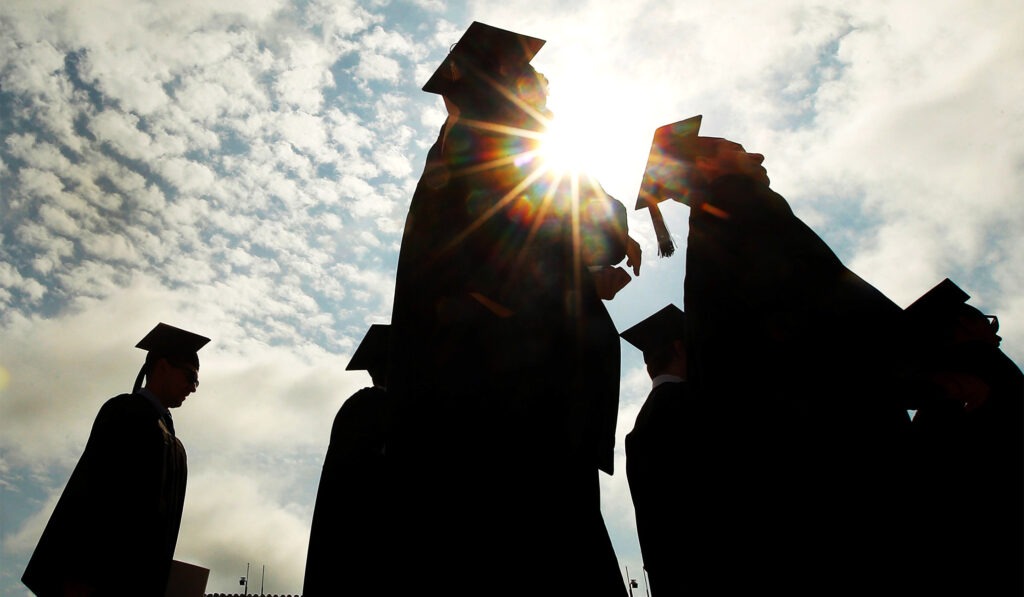
Professors don’t challenge them enough, nor do they challenge themselves.
When I paid my last college-tuition bill, I grimaced as thousands of dollars disappeared from my bank account. Like many students, I tell myself that my education will pay off in the long run — but I might not actually be getting my money’s worth.
In his book Academically Adrift, sociologist Richard Arum of New York University reports that 45 percent of undergraduate students show little advancement in their ability to think critically, reason, or write well after their first two years of college — basically, half of students learn almost nothing in three essential areas. As a current student, I think I know why our higher-education system is failing.
It’s hard to see how students could learn anything in such an imbalanced educational environment. Critical thinking is a skill developed through rigorous debate, but on most college campuses the conversation is one-sided. Left-leaning professors now outnumber their conservative counterparts at least five to one, and liberal-arts departments are among the most ideologically imbalanced. According to writer Liz Wolfe at Reason, 39 percent of top liberal-arts colleges employ zero Republican professors. How can students develop their reasoning or their writing when they only ever hear one side of the story?
Some of these left-leaning professors adopt a liberal attitude toward classroom rigor as well, if we judge them by the workload demanded in their courses. In one survey, 50 percent of students reported that they did not take any courses requiring 20 or more pages of writing during the previous semester, and while this may include some science- or math-focused students, it’s clear that many others aren’t getting the rigorous liberal-arts education they signed up for. One in three students escape an average semester without taking a class requiring even 40 pages of reading a week. It’s obvious why students aren’t developing these skills — educators aren’t forcing us to practice them.
But students can’t put all the blame for our failed education on others. A large part of the problem lies on our own shoulders, because my generation’s attitude toward our own education is all but abysmal. Students are paying thousands of dollars to take their classes but often aren’t even showing up. USA Today reports that students miss an average of 240 classes over their four years at college, and 25 percent of students compile attendance records so poor that they essentially miss a year of their education.
To me, that statistic comes as no surprise. After the first week of the semester, many of my classes are half empty. Sometimes I’ll even see students for the first time at a final exam. Studies show that class attendance is the best predictor of college GPA — so if students are struggling to learn, maybe they should try showing up.
After the first week of the semester, many of my classes are half empty. Sometimes I’ll even see students for the first time at a final exam.
Even when students are in class, they’re not always present. Walk into the typical college classroom and you’ll see a room full of students clicking away on their laptops. Step toward the back and you’ll notice that half of them are scrolling through Facebook or checking Twitter, and others are just using their laptop screen to hide their phone. Technology is a great tool, but the death of pen and paper may actually spell doom for classroom productivity. A survey from the research firm Survata found that students do sometimes use their phones for school-related work, but that 54 percent of students text friends in class and 52 percent browse social media during lectures. The Internet is often a blessing — but when it comes to classroom learning, it’s a curse.
Much learning happens outside of the classroom, but too many students are abdicating their role in self-education. According to Forbes, 45 percent of students “don’t enjoy reading serious books and articles, and [they] only do it when [they] have to.” A shocking 40 percent of students said that “books have never gotten me very excited.” Classroom assignments aside, a generation with no use for the library can’t complain when they leave school without the reading and writing skills we’ll need in the workplace.
College is supposed to be a time for exploration and fun, but some students are taking it too far, and their education is suffering as a result. According to a study from the National Institute on Alcohol Abuse, 60 percent of students drink alcohol regularly, and two in three of those students binge-drink. Some degree of drinking on campus is inevitable, but right now it’s so extreme that one in four students suffer academic consequences because their drinking leads to missed deadlines, failed exams, and class absences. If my generation wants to start seeing more results from our education, we may need to rethink these habits.
Our system of higher education is in disarray, and it’s failing everyone involved. Some serious reforms are needed. It’s time to consider policy-based solutions, such as laws protecting free speech and open debate on campus, guarantees of academic freedom for conservative (and liberal) professors, grade deflation and increased classroom rigor, and student-loan reform. But some of the necessary change must come from my generation itself. We need to take our own education more seriously — especially in terms of attendance and work ethic.
Things can’t continue the way they are. Too many students are burying themselves in debt to attend expensive colleges, but they’re failing to develop basic skills. We can’t expect students to survive life after graduation if they’re leaving campus worse off than when they arrived.
Source: here
